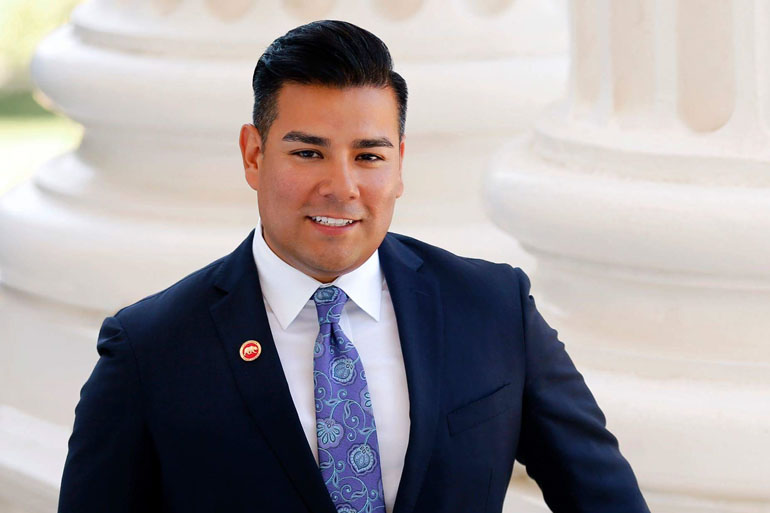Lawmakers in Sacramento have halted a first-in-the-nation effort by California to expand access to health coverage for immigrants living in the state without legal documents.
At the behest of the state Legislature, Covered California, the state’s insurance exchange, withdrew its request to sell unsubsidized health plans to people who are here illegally. The withdrawal was first reported by the Sacramento Bee.
Under the Affordable Care Act, people who cannot prove they are in the country legally are barred from purchasing coverage on the exchange.
Immigrants in this situation had pinned their hopes on the state’s request for an exemption from that rule, submitted last fall to the federal government. Had it been approved, undocumented Californians would have been allowed to buy Covered California plans and join the roughly 1.3 million other people currently enrolled in the exchange.
The effort to give undocumented immigrants access to the state exchange was spearheaded by state Sen. Ricardo Lara (D-Bell Gardens) and other Democrats. They passed legislation last year and Gov. Jerry Brown signed the measure in June. It authorized Covered California to submit an application to federal officials to waive the ban on such sales.
But the chances of federal approval dimmed considerably with the election of Donald Trump, who has pledged to deport immigrants in the country without official papers, and to repeal the Affordable Care Act.
Peter Lee, executive director of Covered California, declined to comment on the withdrawal of the state’s request for the waiver. He referred to a letter the exchange sent Wednesday to the Obama administration, which said the proposal was shelved at the request of Lara.
Lara said in a written statement that he was withdrawing the plan because he feared the Trump administration might use information gleaned from it for the purpose of deporting undocumented immigrants.
The plan to sell to undocumented immigrants is “the first California casualty of the Trump presidency,” Lara wrote. “I take Trump at his words that anyone is subject to deportation at any time, and California will not be part of a wasteful and inhumane campaign against immigrants who are working hard and playing by the rules.”
The decision to pull the plug on the plan comes as the future of health care for millions of Californians hangs in the balance, with Republican leaders in Washington, D.C. moving to repeal the main provisions of the Affordable Care Act.
Anthony Wright, executive director of the consumer advocacy group Health Access California, said California’s move reflects a reorganization of priorities. What is urgent now, he said, is to preserve the current gains in Californians’ health coverage. And in order to bring undocumented immigrants into Covered California, officials must first ensure the exchange survives, Wright explained.
“We didn’t want this waiver request, which was almost assuredly going to get rejected, to get in the way of defending these basic programs that provide coverage for so many,” he said.
The sale of Covered California health plan to immigrants without legal status had not been expected to boost enrollment in the exchange significantly, since they — unlike about 90 percent of current enrollees — would not have qualified for federal subsidies to reduce their premiums. That would have made it difficult or impossible for many of them to afford the policies. Moreover, immigrants in the state illegally can already buy health insurance in the private market, and the coverage options and premiums are similar to the plans sold on the exchange.
Covered California estimated last August that only 17,000 Californians would have gained health coverage as a result opening the exchange to the undocumented population.
Many experts and health care consumer advocates agreed that the effort was mostly a symbolic gesture – but an important one to many people.
Supporters said allowing undocumented immigrants to buy coverage on the exchange would have addressed a problem for many families composed of both legal and non-legal residents. The proposal would have allowed those “mixed-status” families to purchase their insurance together through Covered California, simplifying the process for them. Many argued that it was discriminatory to bar immigrants without papers from the state marketplace.
Lara and other backers of the effort saw it as an important step toward expanding health coverage to all Californians regardless of their immigration status.
Magdalena Velazquez of San Jose, who volunteers with the advocacy group Services, Immigrant Rights, and Education Network (SIREN), has been following the issue closely. Although she does not have legal authority to be in the U.S., she has health coverage through her husband’s employer. But many of her family members and friends are uninsured.
“Sadly, once again we’re seeing that the fight for our health care rights has to take a pause,” Velazquez said.
When California submitted its request to the federal government last year, supporters hoped the Obama Administration would review it quickly, increasing its chances of approval, Wright said. But as of Tuesday, the application process had only gone through a preliminary review.
Some health care experts believe approval would not have been guaranteed even if the Obama administration had completed its review before Trump took office. Excluding immigrants without documents was a compromise that helped get the ACA through Congress in the first place, they noted, and Obama officials would have been reluctant to renege on it.







